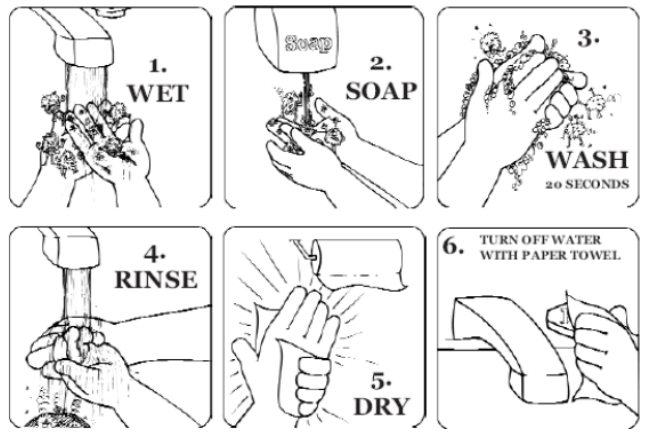MRSA Colonization: A guide for parents
What is MRSA and why is it so serious?
Staphylococci or "staph" bacteria commonly live on the skin and in the nose. Usually staph bacteria don't cause any harm. However, if they get inside the body, they can cause an infection. When common antibiotics don't kill the staph bacteria, it means the bacteria have become resistant to those antibiotics. This type of staph is called MRSA (Methicillin Resistant Staphylococcus aureus).
Infection versus colonization
There are two ways a person can have MRSA.
- A person can have an active infection. An active infection means they have symptoms. This is usually a boil, a sore, or an infected cut that is red, swollen, or pus-filled.
- The other option is that a person can be a carrier. Carriers do not have symptoms that can be seen, but they still have MRSA bacteria living in their nose, skin, or gut. If you or your child is a carrier, your healthcare provider may say that
you or your child is colonized. These words – "carrier" and "colonized" – mean the same thing.
How did my child get MRSA?
Anyone can get MRSA. A person can get MRSA by touching someone or something that has the bacteria on it and then touching their skin or nose. In the hospital, the most common way to get MRSA is when a caregiver or visitor touches the patient or objects in the patient's room without properly washing their hands first.
Is there a test for MRSA?
Children in the critical care units are tested for MRSA periodically during their stay. Typically, this test is simply a swab of each nostril that is sent to lab for analysis.
Is there a treatment for MRSA?
People who are carriers of MRSA typically do not require any treatment. In some cases, a healthcare provider may decide to treat someone to reduce the amount of staph on their skin or in their nose. This may prevent the spread of MRSA to others.
To decrease the amount of staph on your child's body, your child's healthcare provider may, for a short period of time:
- Tell him or her to shower daily with antibacterial soap
- Prescribe antibiotic ointment to put in your child's nose for several days
- Prescribe antibiotic pills/liquid (in some cases)
What can I do to prevent the spread of MRSA to others?
- The single most important thing you can do to protect yourself, your child, and others is excellent hand hygiene every time you enter or leave your child's room.
- Clean your hands and your child's hands often with soap and water or an alcohol-based hand sanitizer.
- Make sure staff and visitors clean their hands before and after interacting with your child or your child's equipment.
| It's OK to ask if you're not sure if someone washed their hands before entering your child's room. |
Will my child always have MRSA?
Different people will be colonized with MRSA for different lengths of time. Some children are colonized for a month or less. Many children remain colonized with MRSA for years.
How do I care for my child?
During your hospital stay, a "Special Precautions" sign may be put on the door to your child's room. This sign alerts staff to use extra care to prevent the spread of MRSA. Your visitors should be instructed to wash their hands before entering the room and just before leaving the room. Visitors may also be asked to wear a gown or gloves when visiting.
Does it matter how I wash my hands?
Yes. You have to rub your hands for at least 20 seconds to get rid of the bacteria. Follow these instructions:

When using alcohol-based sanitizer, use enough to cover all surfaces of your hands, and rub until dry.
When caring for your hospitalized child, wash your hands:
- Before touching your child
- Before dressing changes and handling feeding tubes, IVs, etc.
- After handling any body fluids, such as after diaper changes, wound care, handling spit up or runny noses
- After touching your child
- After touching your child's surroundings, such as bedside table, feeding pump, bottles, door to patient room, etc.
In addition, be sure to wash your hands:
- Before eating
- After using the restroom
- After coughing or sneezing into your hands or blowing your nose
What about after my child is discharged from the hospital?
Be sure to tell your child's healthcare providers that your child is a carrier of MRSA. This is an important piece of your child's medical history.
Questions?
This is not specific to your child, but provides general information. If you have any questions, please ask your nurse or doctor.
Children's Hospitals and Clinics of Minnesota
Last reviewed 8/2015
Adapted from: Minnesota Department of Health Fact Sheet "Learning about MRSA (Methicillin-Resistant Staphylococcus aureus): A guide for patients" (12/2007).
This page is not specific to your child, but provides general information on the topic above. If you have any questions, please call your clinic. For more reading material about this and other health topics, please call or visit Children's Minnesota Family Resource Center library, or visit www.childrensmn.org/educationmaterials.
© 2024 Children's Minnesota
